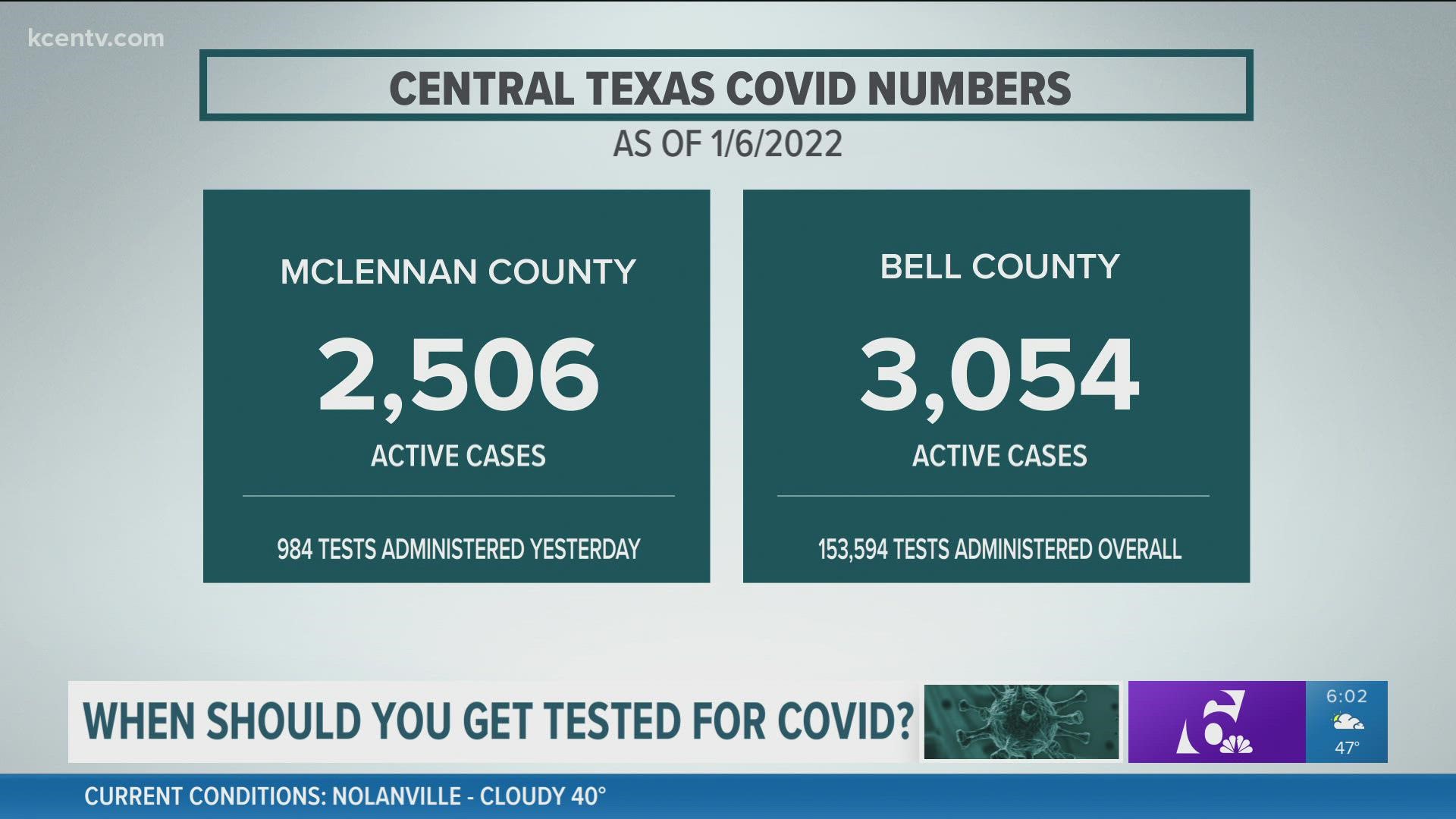TEMPLE, Texas — New studies show rapid COVID-19 antigen tests don't always catch the Omicron variant. Now those that want the most accurate tests will need to keep a few additional factors in mind. The latest data is showing the tests won't work if you take them too early.
Rapid tests like BinaxNOW and QuickVue At-Home are some of the most used at testing sites and emergency care businesses. They are also conveniently available off the shelf.
The FDA had already reported that the tests weren't completely accurate in December. A report from December 28, states "Early data suggests that antigen tests do detect the Omicron variant, but may have reduced sensitivity."
"Sensitivity" refers to a test's ability to correctly detect the variant and indicate a patient is positive.
A pre-printed study released this week showed BinaxNOW and QuickVue At-Home were not detecting Omicron right away. Subjects had already tested positive for COVID-19 with a PCR test. The rapid tests didn't show a positive result consistently until 3 days afterward and were uniformly positive 4 days afterward.
The study stated, "The policy implication is that rapid antigen tests may not be as fit-for-purpose in routine workplace screening to prevent asymptomatic spread of Omicron, compared to prior variants."
The study's result came from a sample size of 29, and is one of the first competed studies available as Omicron spreads.
A previous study looked at the effectiveness of several other brands of rapid antigen test and came to a similar conclusion. The study stated, "use of Ag-RDTs in the early symptomatic period of an Omicron infection or in asymptomatic patients could be less reliable, with important implications for public health measures."
Express ER Medical Director Daniel Akers told 6 News he is seeing a similar pattern with COVID-19 patients coming into his business. People with no symptoms rarely test positive on a rapid test. It's a different story once symptoms appear.
"With Delta, sometimes you wouldn't have any symptoms and patients would test positive. With Omicron it seems you need to be a few days into the illness to get a positive result," Akers said.
With that in mind, people who have mild early symptoms of Omicron may want to stay home but wait a day or two before they get a rapid test for a more accurate result.
If a person is quarantined due to possible exposure to COVID-19, the CDC is recommending waiting 5 days to take a test.
"If you do not develop symptoms, get tested at least 5 days after you last had close contact with someone with COVID-19," CDC guidance states.
If you chose to buy an at-home test off the shelf, the CDC also recommends you self-test twice over a three-day period.
"To improve results, antigen tests should be used twice over a three-day period with at least 24 hours and no more than 48 hours between tests," the guidance states.
This also helps the user give symptoms more time to develop, and Akers told 6 News it also helps minimize user error on the first attempt.
"You have to leave the swab in your nose for quite a while," Akers said. "It's difficult to do, when you are doing it the first time on yourself, without coughing or gagging."
Akers told 6 News people should generally wait till they have noticeable COVID-19 symptoms before coming into Express ER to get a test and people don't typically need a second test at the business.
Those wanting the most accurate test possible can still try to hunt down a PCR test at a local pharmacy or hospital. The tests are not typically used first because they must be shipped to a lab and take several days to provide a result. They will take even longer if state labs become overwhelmed.
"It becomes a logistic issue where sending hundreds of tests to the reference lab of CPL or Labcorp, and them send those to the state, causes a massive backlog," Akers said.
Some hospital systems, including Baylor Scott and White, have their own labs for PCR tests.
The FDA and RADx are continuing to further evaluate the performance of antigen tests using patient samples with live virus at this time but scientists have yet to quantify exactly how often antigen tests fail to detect Omicron.

